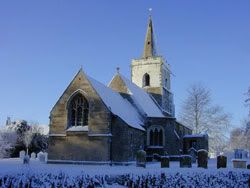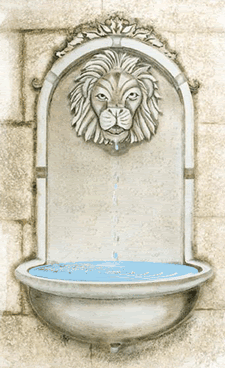Church Music
 There are two musical situations on which I think we can be confident that a blessing rests. One is where a priest or an organist, himself a man of trained and delicate taste, humbly and charitably sacrifices his own (aesthetically right) desires and gives the people humbler and coarser fare than he would wish, in a belief (even as it may be, the erroneous belief) that he can thus bring them to God. The other is where the stupid and unmusical layman humbly and patiently, and above all silently, listens to music which he cannot, or cannot fully, appreciate, in the belief that it somehow glorifies God, and that if it does not edify him this must be his own defect. Neither such a High Brow nor such a Low Brow can be far out of the way. To both, Church Music will have been a means of grace: not the music they have liked, but the music they have disliked. They have both offered, sacrificed, their taste in the fullest sense. But where the opposite situation arises, where the musician is filled with the pride of skill or the virus of emulation and looks with contempt on the unappreciative congregation, or where the unmusical, complacently entrenched in their own ignorance and conservatism, look with the restless and resentful hostility of an inferiority complex on all who would try to improve their taste--there, we may be sure, all that both offer is unblessed and the spirit that moves them is not the Holy Ghost.
There are two musical situations on which I think we can be confident that a blessing rests. One is where a priest or an organist, himself a man of trained and delicate taste, humbly and charitably sacrifices his own (aesthetically right) desires and gives the people humbler and coarser fare than he would wish, in a belief (even as it may be, the erroneous belief) that he can thus bring them to God. The other is where the stupid and unmusical layman humbly and patiently, and above all silently, listens to music which he cannot, or cannot fully, appreciate, in the belief that it somehow glorifies God, and that if it does not edify him this must be his own defect. Neither such a High Brow nor such a Low Brow can be far out of the way. To both, Church Music will have been a means of grace: not the music they have liked, but the music they have disliked. They have both offered, sacrificed, their taste in the fullest sense. But where the opposite situation arises, where the musician is filled with the pride of skill or the virus of emulation and looks with contempt on the unappreciative congregation, or where the unmusical, complacently entrenched in their own ignorance and conservatism, look with the restless and resentful hostility of an inferiority complex on all who would try to improve their taste--there, we may be sure, all that both offer is unblessed and the spirit that moves them is not the Holy Ghost. These highly general reflections will not, I fear, be of much practical use to any priest or organist in devising a working compromise for a particular church. The most they can hope to do is to suggest that the problem is never a merely musical one. Where both the choir and the congregation are spiritually on the right road no insurmountable difficulties will occur. Discrepancies of taste and capacity will, indeed, provide matter for mutual charity and humility.
~C.S. Lewis, Christian Reflections, "On Church Music" (1949)
When I first became a Christian, about fourteen years ago, I thought that I could do it on my own, by retiring to my rooms and reading theology, and I wouldn't go to the churches and Gospel Halls; [...] I disliked very much their hymns, which I considered to be fifth-rate poems set to sixth-rate music. But as I went on I saw the great merit of it. I came up against different people of quite different outlooks and different education, and then gradually my conceit just began peeling off. I realized that the hymns (which were just sixth-rate music) were, nevertheless, being sung with devotion and benefit by an old saint in elastic-side boots in the opposite pew, and then you realize that you aren't fit to clean those boots. It gets you out of your solitary conceit.
~C.S. Lewis, God in the Dock, "Answers to Questions on Christianity", (1944)
_______________________
On this day:
1948 C.S. Lewis's poem "The Late Passenger" was published in Punch. It told the story of the unicorn being left off Noah's ark.
(from Around the Year with C.S. Lewis and His Friends, Kathryn Lindeskoog)
(note to readers: I will post this poem tomorrow. ~Arevanye)




0 Comment(s):
Post a Comment
<< Home